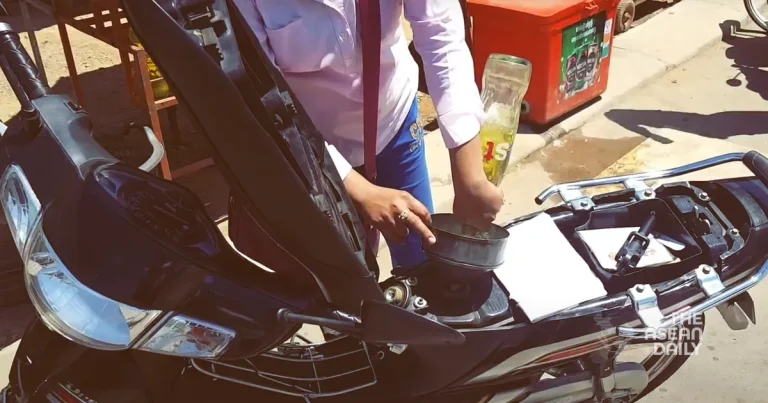21-10-2024 (BANGKOK) The illegal trade of subsidised petrol and diesel smuggled from Malaysia continues to flourish openly along the streets of southern Thailand, particularly in the border town of Sungai Golok. This persistent black market is driven by a significant price disparity between the two countries, offering substantial profits for those involved in the illicit trade.
Roadside stalls in Sungai Golok brazenly display bottles and cans of contraband fuel, with prices ranging from 28 baht (approximately RM3.60) for a one-litre bottle to 250 baht (about RM32.5) for a nine-litre can. Despite the markup, these prices remain attractive to Thai consumers, as they are still lower than official Thai fuel prices.
Sungai Golok’s deputy mayor, Aphichet Jeh-Ouma, recently shed light on the scale of the problem, revealing that over 100 small traders are engaged in selling smuggled Malaysian fuel along the roadside. The trade route stretches from Sungai Golok town to Yala town, creating a corridor of illicit commerce.
“Thai authorities frequently admonish these sellers of illegal fuels, but they persist, claiming it’s necessary for their survival,” Jeh-Ouma stated. He acknowledged the complexity of the situation, noting that while the practice is illegal, it meets a demand driven by economic necessity.
The deputy mayor dismissed suggestions that Malaysians were purchasing the smuggled fuel, explaining that visitors typically enter Thailand with their vehicles already fuelled. However, he conceded that isolated incidents might occur when travellers run out of fuel due to unexpected circumstances such as traffic jams.
Insights from local traders reveal the mechanics of this underground economy. Mat Yi, a 40-year-old vendor, disclosed to Bernama that he sells up to 100 litres of “benzine” daily, sourced from Rantau Panjang in Pasir Mas, Malaysia. “We are aware selling this fuel is illegal, but many continue to do so,” he admitted, highlighting the economic motivations behind the trade.
Another trader, Saleeha Abdullah, 56, pointed to the high price of RON 95 petrol in Thailand—currently exceeding 41 baht (about RM4.30) per litre—as the primary driver of demand for smuggled fuel. She noted that the bottled petrol, mainly used by motorcyclists, is priced competitively between 28 and 30 baht per litre.
“All roadside bottles are of various brands with prices that fluctuate according to the supply difficulty,” Saleeha explained. “More recognised brands can be quite pricey, but all fuel originates from Malaysia.”
The prevalence of this illicit trade underscores the challenges faced by authorities on both sides of the border. While Thai officials attempt to curb the practice, the economic incentives and local demand continue to sustain the black market.
This situation also raises questions about the effectiveness of Malaysia’s fuel subsidy programme, as a significant portion of the subsidised fuel appears to be diverted across the border, benefiting neither the intended Malaysian consumers nor the Malaysian economy.




